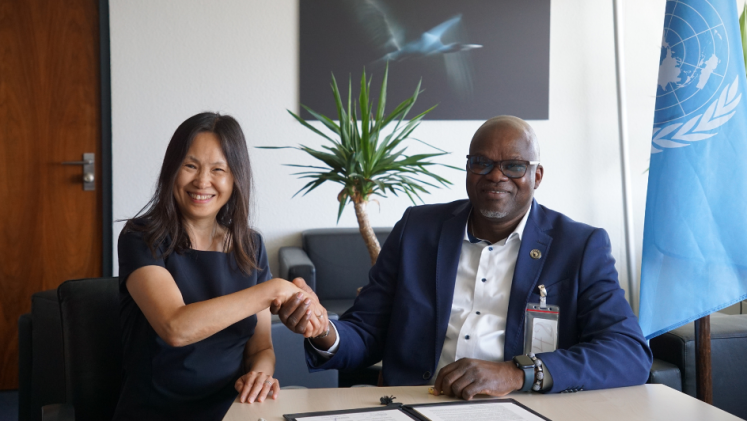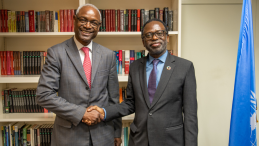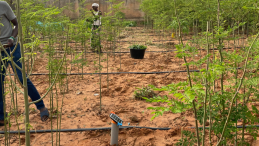A new MoU strengthens ties for climate research, innovation and leadership across continents.
United Nations University Vice-Rectorate in Europe (UNU-VIE) and the West African Science Service Centre on Climate Change and Adapted Land Use (WASCAL) signed a Memorandum of Understanding (MoU) to enhance research and academic collaboration, capacity-building and knowledge exchange regarding comprehensive climate change solutions.
The new MoU focuses on advancing research, capacity-building and innovation, particularly on climate and environment, as both partners share substantial areas of common interest in policy and action-based research on climate change, energy and related topics, as well as capacity-building of the next generation of thought leaders. Located in Accra, Ghana, WASCAL is a well-suited partner for UNU-VIE, as it aims to help tackle climate change challenges and thereby enhance the resilience of human and environmental systems to climate change. It does so by strengthening the research infrastructure and capacity in West Africa related to climate change and by pooling the expertise of ten West African countries and Germany.
“We have been working closely with WASCAL partners for many years, which has built a solid foundation for our joint endeavours in the future. This MoU has formalized our cooperation and reaffirmed our joint vision and mission to strengthen the cooperation with the majority world and to jointly leverage the power of science for a better path to human and planetary well-being” Prof. Dr. Shen Xiaomeng, UNU Vice-Rector in Europe & Director of UNU-EHS said.
One such recent example of close cooperation is the Online Summer School for Disaster Risk Professionals in Africa, which offered unique opportunities to enhance participants’ expertise. It expanded their networks and strengthened their professional capacities through advanced knowledge and practical skills in disaster risk reduction, equipping them to respond more effectively to evolving climate and disaster risks.
Looking ahead, the partnership promises to strengthen global knowledge networks and empower future generations of climate leaders.




